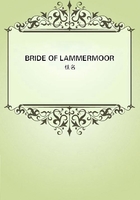
第23章
This instantly recalled him to a sense of their situation: a glance at his daughter reminded him of the necessity of procuring her assistance. He called to the man, whom he concluded to be one of his foresters, to give immediate attention to Miss Ashton, while he himself hastened to call assistance. The huntsman approached them accordingly, and the Lord Keeper saw he was a stranger, but was too much agitated to make any farther remarks.
In a few hurried words he directed the shooter, as stronger and more active than himself, to carry the young lady to a neighbouring fountain, while he went back to Alice's hut to procure more aid.
The man to whose timely itnerference they had been so much indebted did not seem inclined to leave his good work half finished. He raised Lucy from the ground in his arms, and convenying her through the glades of the forest by paths with which he seemed well acquainted, stopped not until he laid her in safety by the side of a plentiful and pellucid fountain, which had been once covered in, screened and decorated with architectural ornaments of a Gothic character. But now the vault which had covered it being broken down and riven, and the Gothic font ruined and demolished, the stream burst forth from the recess of the earth in open day, and winded its way among the broken sculpture and moss-grown stones which lay in confusion around its source.
Tradition, always busy, at least in Scotland, to grace with a legendary tale a spot in itself interesting, had ascribed a cause of peculiar veneration to this fountain. A beautiful young lady met one of the Lords of Ravenswood while hunting near this spot, and, like a second Egeria, had captivated the affections of the feudal Numa. They met frequently afterwards, and always at sunset, the charms of the nymph's mind completing the conquest which her beauty had begun, and the mystery of the intrigue adding zest to both. She always appeared and disappeared close by the fountain, with which, therefore, her lover judged she had some inexplicable connexion. She placed certain restrictions on their intercourse, which also savoured of mystery. They met only once a week--Friday was the appointed day--and she explained to the Lord of Ravenswood that they were under the necessity of separating so soon as the bell of a chapel, belonging to a hermitage in the adjoining wood, now long ruinous, should toll the hour of vespers. In the course of his confession, the Baron of Ravenswood entrusted the hermit with the secret of this singular amour, and Father Zachary drew the necessary and obvious consequence that his patron was enveloped in the toils of Satan, and in danger of destruction, both to body and soul. He urged these perils to the Baron with all the force of monkish rhetoric, and described, in the most frightful colours, the real character and person of the apparently lovely Naiad, whom he hesitated not to denounce as a limb of the kingdom of darkness.
The lover listened with obstinate incredulity; and it was not until worn out by the obstinacy of the anchoret that he consented to put the state and condition of his mistress to a certain trial, and for that purpose acquiesced in Zachary's proposal that on their next interview the vespers bell should be rung half an hour later than usual. The hermit maintained and bucklered his opinion, by quotations from Malleus Malificarum, Sprengerus, Remigius, and other learned demonologists, that the Evil One, thus seduced to remain behind the appointed hour, would assume her true shape, and, having appeared to herterrified lover as a fiend of hell, would vanish from him in a flash of sulphurous lightning. Raymond of Ravenswood acquiesced in the experiment, not incurious concerning the issue, though confident it would disappoint the expectations of the hermit.
At the appointed hour the lovers met, and their interview was protracted beyond that at which they usually parted, by the delay of the priest to ring his usual curfew. No change took place upon the nymph's outward form; but as soon as the lengthening shadows made her aware that the usual hour of the vespers chime was passed, she tore herself from her lover's arms with a shriek of despair, bid him adieu for ever, and, plunging into the fountain, disappeared from his eyes. The bubbles occasioned by her descent were crimsoned with blood as they arose, leading the distracted Baron to infer that his ill-judged curiosity had occasioned the death of this interesting and mysterious being. The remorse which he felt, as well as the recollection of her charms, proved the penance of his future life, which he lost in the battle of Flodden not many months after. But, in memory of his Naiad, he had previously ornamented the fountain in which she appeared to reside, and secured its waters from profanation or pollution by the small vaulted building of which the fragments still remained scattered around it. From this period the house of Ravenswood was supposed to have dated its decay.
Such was the generally-received legend, which some, who would seem wiser than the vulgar, explained as obscurely intimating the fate of a beautiful maid of plebeian rank, the mistress of this Raymond, whom he slew in a fit of jealousy, and whose blood was mingled with the waters of the locked foundtain, as it was commonly called. Others imagined thatthe tale had a more remote origin in the ancient heathen mythology. All, however, agreed that the spot was fatal to the Ravenswood family;and that to drink of the waters of the well, or even approach its brink, was as ominous to a descendant of that house as for a Grahame to wear green, a Bruce to kill a spider, or a St. Clair to cross the Ord on a Monday.